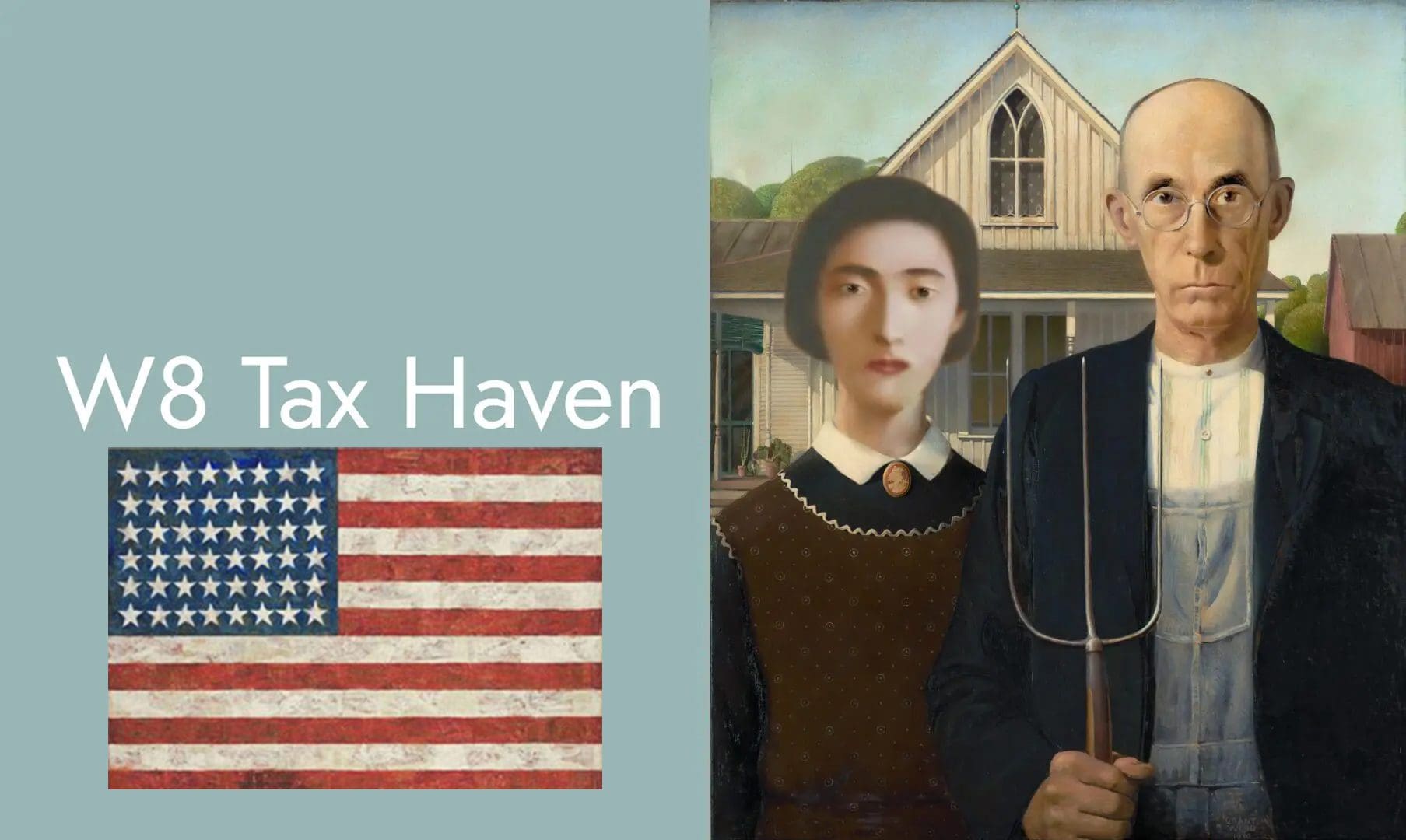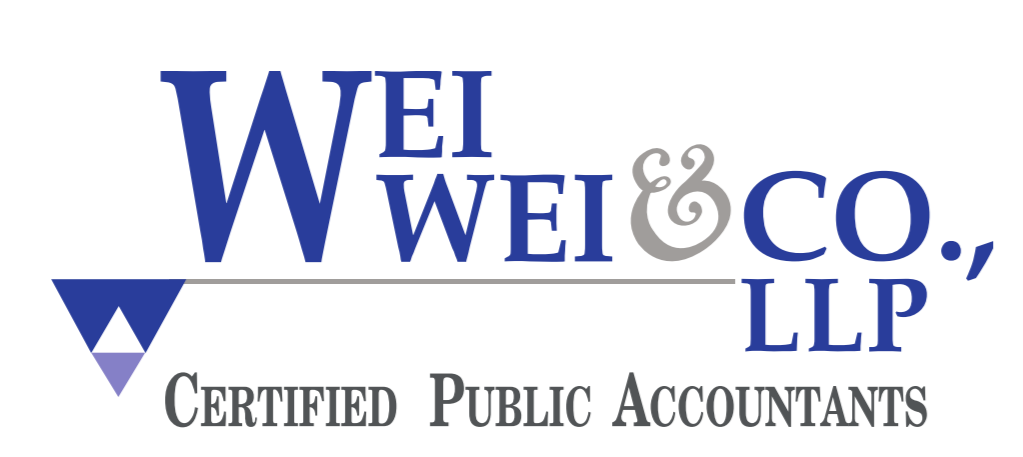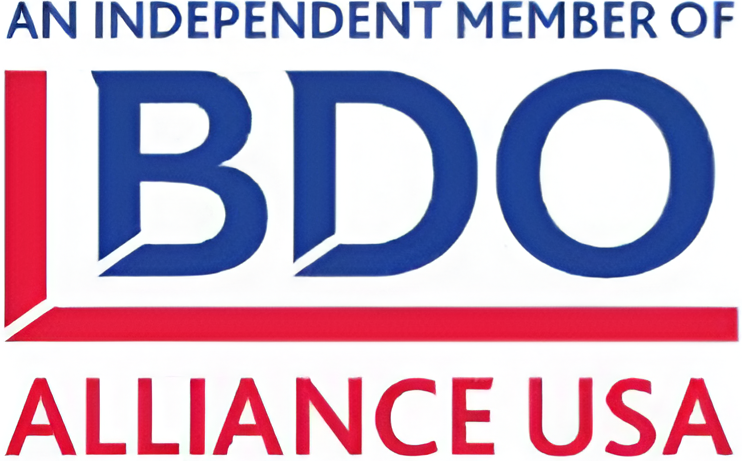
About
W8 Tax Haven is a New York City based family office. We manage
portfolios across various assets classes including art. Our mission
is to create generational wealth for W8 status families. And much
more. We firmly believe that an educated investor is the best
investor. Moreover, we will always look to share our expertise
with our W8 like minded family offices to win together thru
collaboration. Collaboration to stop Asian Hate and more.
W8 Tax Haven LLC New York, NY
Frequently Asked Questions about W8
FAQ for Form W-8BEN



▼ PLEASE CLICK + TO EXPAND
The U.S. government requires payers of interest and dividends to non-resident payees withhold from such payment an amount at a specific rate. A nonresident alien is a foreign person who does not pass the green card test or the substantial presence test.
Form W-8BEN is used to determine tax withholding status for nonresident aliens and to claim income tax treaty benefits with respect to income.
Zero. Nonresident aliens are not subject to U.S. capital gains tax, and no money will be withheld by the brokerage firm.
BRK.B (Berkshire Hathaway Inc. Class B) BABA (Alibaba Group Holding Ltd) AAPL (Apple Inc.) BIDU (Baidu Inc)
No withholding tax on all debt instruments listed on a U.S. exchange with maturity between 1 to 30 years. For other details, please consult a CPA in the U.S.
The statutory withholding rate on dividend income is 30%. Because of the tax treaty with China, the rate is reduced to 10%. For Hongkong and Macao, the rate is 0%. Please refer to Q&A above for tax withholding on interest income and capital gain.
No. Form W-8BEN is for nonresident alien only.
Completed form W-8BEN is in effect beginning on the date signed until the last day of the third succeeding calendar year, in general three years.
答:美国政府要求向非美国税务居民支付的利息以及股息中扣除一定比例的金额。非
美国税务居民指的是年内在美国居住少于183天同时还不持有绿卡的外国人。
答:W-8BEN表格用于确定非美国税务居民的预扣税状况以及税收协定优惠。
答:无。非美国税务居民股票收益不受资本利得税的影响,经纪公司也不会扣留相关
资金。
答:BRK.B巴菲特伯克希尔哈撒韦公司
BABA 阿里巴巴集团控股有限公司
AAPL 苹果公司
BIDU 百度公司
答:零,在美国交易所上市1至30年到期的债务证券没有预扣税。其他详情请咨询
美国注册会计师。
答:股息收入的法定扣税率为30%。由于与中国的税收协定,税率降低到10%。香
港和澳门的税率为0%。利息收入和资本利得预扣税请参阅上述问答.
答:不需要。W-8BEN表格仅适用于非美国税务居民。
答:W-8BEN表格从签署日期开始生效,直到第三年的最后一天,一般为三年。

FAQ for U.S. Estate and Gift Tax
美国遗产税与赠予税常见问题
▼ PLEASE CLICK + TO EXPAND
Form W-8 BEN is used to determine death tax for Deceased Non Residents with respect to their US situated assets.
Deceased Non Residents who are not American Citizen are subjects to US estate taxation with respect to their US situated assets.
For income tax purpose, the residency depends on the Substantial presence test as below:
Resident: You must be physically present in the United States (U.S.) on at least:
1) 31 days during the current year, and 本年内居住满31天,且
2) 183 days during the 3-year period that includes the current year and the 2 years immediately before that, counting:
• All the days you were present in the current year, and
• 1/3 of the days you were present in the first year before the current year, and
• 1/6 of the days you were present in the second year before the current
NRA: Otherwise, you will be considered as nonresident alien (NRA).
The substantial presence test we discussed above is for income tax purposes. However, residency for gift and estate tax purposes is defined as the person’s domicile. Domicile means being physically present in the U.S. and intending to remain in the U.S. permanently.
To determine whether you are a US domiciliary, the following factors are considered: :
• Statement of intent (in visa applications, tax returns, will, etc.) )
• Location of property
• Length of US residence
• Green card status
• Style of living in the US and abroad
• Ties to former country
• Country of citizenship
• Location of business interests
• Places where club and church affiliations, voting registration, and driver licenses are maintained
TIP: Consult with a tax professional regarding your US domicile status.
Given the differences between income tax residency and gift tax residency, a person can be subject to one, none or both.
If you are considered a non-US domiciliary, you only need to pay on U.S. situs assets, will discuss later in
• Annual gift tax exclusion: $15,000 for single
• Life time basic exclusion amount (BEA): $60,000 for single
A non-US domiciliary is subject to gift and estate tax only on U.S. situs property. By saying U.S. situs property, gift tax and estate tax defines it differently.
o U.S. situs property under Gift tax:
Only real estate and tangible personal property.
o U.S. situs property under Estate tax:
U.S. real property, tangible property located within the U.S. and stock in U.S. corps.
Please see the differentiation as below:
| Property Type | Gift Tax | Estate Tax | ||
|---|---|---|---|---|
| Yes | No | Yes | No | |
| Tangible Personal Property in U.S. (e.g. jewelry) | X | X | ||
| Currency in U.S. Safe Deposit Box | X | X | ||
| Cash Deposits in a U.S. Bank | Possibly | X | ||
| U.S. Real Property | X | X | ||
| Non-U.S. Real Property | X | X | ||
| U.S. Stocks | X | X | ||
| Non-U.S. Stocks | X | X | ||
| U.S. Government and Corporate Bonds | X | X | ||
| U.S. States/Muni Bonds | X | X | ||
| U.S. Partnership/LLC Interest | Possibly | Possibly | ||
| Retirement Plans | N/A | X | ||
| Life Insurance Death Benefits | X | X | ||
Yes. You may think about the direct ownership of U.S. situs property. Please consult a tax professional for tax plans in your specific situation.
2019
TAXABLE ESTATE
$0–$10,000 18%
$10,000 – $20,000 20%
$20,000 – $40,000 22%
$40,000 – $60,000 24%
$60,000 – $80,000 26%
$80,000 – $100,000 28%
$100,000 – $150,000 30%
$150,000 – $250,000 32%
$250,000 – $500,000 34%
$500,000 – $750,000 37%
$750,000 – $1,000,000 39%
$1,000,000+ 40%
表格 W-8 BEN 是用于确定非美国居民在美国资产的遗产税。
作为非美国居民,死后需要对其属于美国的资产在美上缴的税务,就叫做遗产税。
针对所得税的居民身份取决于以下实质居住测试:
必须满足以下两个测试才能被认定为居民:
1) 本年内居住满31天,且
2) 过去3年内(包括本年和前两年)居住天数按照满足以下三个条件的天数之和加总达到183天
• 本年出现在美国的天数;
• 去年出现在美国的天数的三分之一;以及
• 前年出现在美国的天数的六分之一。
否则的话您属于外国居民,也就是我们常说的NRA。
我们上面所探讨的实质居住测试是针对所得税的,但是赠予税和遗产税中所定义的居民测试是取决于一个人的定居身份(Domicile)。
以下这些因素是考虑一个人是否会被定义为有意图永久居住:
• 意图说明(签证,税单,遗产等)
• 资产所在地
• 居美时长
• 绿卡情况
• 生活特征
• 与先前国家的联系
• 公民身份
• 客户所在地
• 俱乐部和教会,投票权,以及驾照所在地等
建议:最好和专业税务师咨询来确认您的定居身份。
由于所得税的居民测试和赠予遗产税的居住测试有所不同,您可能需承担两项税负之一,两项皆无,或两项皆有。
只需对在美资产赋税,在美资产具体定义请见问题 4。
• 如果您属于外国居民,您可以使用每人年度礼品税免税额(2019年为15,000美元/单身)以及终身免税额(2019年为60,000美元/单身)
外国居民只需要对美国境内资产交税,而赠予税和遗产税中对于美国境内资产的定义又有所不同。
o 讨论赠予税时需要交税的美国境内资产只包括:
美国房产和有形资产。
o 讨论遗产税时需要交税的美国境内资产包括:
美国房产,有形资产,以及持有的美国公司的股票。
具体区别可见下表:
| Property Type | Gift Tax | Estate Tax | ||
|---|---|---|---|---|
| Yes | No | Yes | No | |
| Tangible Personal Property in U.S. (e.g. jewelry) | X | X | ||
| Currency in U.S. Safe Deposit Box | X | X | ||
| Cash Deposits in a U.S. Bank | Possibly | X | ||
| U.S. Real Property | X | X | ||
| Non-U.S. Real Property | X | X | ||
| U.S. Stocks | X | X | ||
| Non-U.S. Stocks | X | X | ||
| U.S. Government and Corporate Bonds | X | X | ||
| U.S. States/Muni Bonds | X | X | ||
| U.S. Partnership/LLC Interest | Possibly | Possibly | ||
| Retirement Plans | N/A | X | ||
| Life Insurance Death Benefits | X | X | ||
有的。由于赠予税所要求交税的资产只有房产和有形资产,所以可以考虑如何将有形资产转为无形资产,从而避免赠予税。请咨询专业税务规划人员从而具体情况具体分析。
2019
应税遗产金额 适用税率
$0–$10,000 18%
$10,000 – $20,000 20%
$20,000 – $40,000 22%
$40,000 – $60,000 24%
$60,000 – $80,000 26%
$80,000 – $100,000 28%
$100,000 – $150,000 30%
$150,000 – $250,000 32%
$250,000 – $500,000 34%
$500,000 – $750,000 37%
$750,000 – $1,000,000 39%
$1,000,000+ 40%
Thinking ahead with MarcumBP… Non-US citizens who live, work, or own property in the US need to have a clear understanding of the potential implications of the US estate and gift tax rules. As described in this article, residency and domicile choices can have major tax implications. An international estate planning professional should be consulted to help you determine any potential impact and develop an approach based on your specific circumstances.
在美国生活,工作或拥有房产的非美国公民需要对美国房地产和赠与税规则的潜在影响有一定地了解。如本文所述,居住身份的认定可能会产生重大的税务影响。我们建议您咨询国际税务规划专业人员,以帮助您提前了解任何潜在影响,并根据您的具体情况制定税务规划方法。
As companies and individuals increasingly become globally mobile, more and more people will be affected by multinational tax rules. We hope the information provided here will help you start thinking about steps to take to confirm you are properly prepared for potential US estate and gift tax implications of a move to the US or the purchase of US property. Thank you!
随着公司和个人的全球化发展,越来越多的人将受到跨国税收规则的影响。我们希望此处提供的信息可以帮助您考虑您是否已准备好应对移民美国或处理美国财产的过程中可能带来的美国遗产税和赠与税的影响。谢谢!
梁恩泽 Stanley Liang, CPA
执行董事 美国注册会计师
梁先生为各种不同行业的客户提供高质量的财务及税务筹划专业服务,包括为上市公司在中国的子公司以及计划在美国进行并购或IPO交易的中国公司提供会计、审计和咨询服务等。在加入麦楷博平前,梁先生曾分别担任一家饮料行业香港上市公司美国分公司财务总监职务、美国第五大会计师事务所纽约办公室高级分析师以及安永会计师事务所北京部高级审计师。
梁先生的专业知识领域涵盖金融、制造批发、医药、教育、房地产以及石油和天然气行业等。他为客户提供在美国的房地产投资信托基金、股票、固定收益和对冲基金等金融服务,亦为401(k)退休计划提供咨询,并确保客户符合美国政府的所有相关规定。

Stanley (Enze) Liang CPA
Managing Director
Marcum Bernstein & Pinchuk LLP
7 Penn Plaza Suite 830
New York, NY 10001
D: (646) 442-4815
C: (718) 866-8185
F: (646) 349-5200
Stanley.liang@marcumbp.com
Additional Resources for W8
To learn more about above sections said IRS form W8, please click:
https://www.irs.gov/pub/irs-pdf/fw8ben.pdf
https://www.irs.gov/forms-pubs/about-form-w-8
Or,
click below Buttons.
Why Wealthy Chinese Investors Should Invest in the U.S.
▼Please click the ▼Play button to hear a Podcast
▼ PLEASE CLICK + TO EXPAND
The U.S. has effectively replaced Switzerland as the world’s premier tax haven for foreign investors. No other country offers the same combination of security, economic strength, legal protections, and tax benefits, allowing not only preservation of capital but significant growth.
A Chinese investor who is a non-resident alien of the U.S. can benefit from zero withholding tax on capital gains, tax-free interest on U.S. government and corporate bonds, and exemption from U.S. estate tax on certain fixed-income investments such as U.S. government and corporate bonds. By doing so, you can gain access to secure, tax-efficient, and stable U.S. financial markets without becoming a U.S. taxpayer.
The U.S. is a democratic nation with a deep-rooted commitment to the rule of law and the protection of personal property rights. Unlike other jurisdictions where political shifts or government intervention could jeopardize wealth, the U.S. upholds legal principles that safeguard assets, ensuring that investors' rights are respected. The American values of liberty, freedom, and the pursuit of happiness create a favorable environment for wealth preservation and long-term investment.
Given its substantial fiscal deficit, the U.S. government actively encourages foreign investment. Wealthy Chinese investors play a crucial role in stabilizing U.S. debt markets by purchasing U.S. Treasury bonds, which helps lower borrowing costs. Additionally, investments in U.S. corporate bonds contribute to job creation and economic growth, making foreign capital a vital component of the American financial system.
The United States offers unparalleled security for foreign investors. Unlike traditional tax havens such as Singapore, Switzerland, the British Virgin Islands, or the Cayman Islands, none of which have the military strength to defend against global adversaries, the U.S. possesses the world’s most powerful military. This ensures that assets held in U.S. financial institutions remain secure, even in times of geopolitical instability.
With these advantages, the U.S. has effectively replaced Switzerland as the world’s premier tax haven for foreign investors. No other country offers the same combination of security, economic strength, legal protections, and tax benefits.
美国已经有效取代瑞士,成为全球最重要的避税天堂。没有其他国家能够提供相同的安全性、经济实力、法律保护和税务优惠,这不仅能够保全资本,还能带来可观的获利。
作为非美国居民的外国人士,中国投资者可以享受零资本收益预扣税、美国政府和企业债券的利息免税,以及某些固定收益投资(如美国政府和企业债券)的美国遗产税豁免。这意味着,您可以在不成为美国纳税人的情况下,进军安全、高效节税、稳定的美国金融市场。
美国是一个民主国家,坚持法治并重视个人财产权的保护。某些国家政治变动或政府干预可能威胁到个人财富安全,而美国则以法律原则保障资产,确保投资者权益受到尊重。美国崇尚自由与财富保护,为长期投资和财富增值创造了有利环境。
由于美国存在庞大的财政赤字,政府积极鼓励外国投资。富裕的中国投资者通过购买美国国债,在稳定美国债务市场方面发挥了关键作用,从而帮助降低借贷成本。此外,对美国企业债券的投资也促进了就业和经济增长,使外国资本成为美国金融体系的重要组成部分。
美国为外国投资者提供无与伦比的资产安全保障。相比于新加坡、瑞士、英属维尔京群岛或开曼群岛等传统避税天堂,这些地区并没有足够的军事力量来抵御全球性威胁,而美国拥有全球最强大的军事实力。因此,即使在地缘政治不稳定的情况下,存放于美国金融机构的资产仍然安全无虞。
综合这些优势,美国已经取代瑞士,成为全球首选的避税天堂。没有其他国家能够同时提供如此高水平的安全性、经济稳定性、法律保护和税务优惠。
Common Mistakes; Abandoned Funds
Abandoned Funds
▼Please click the ▼Play button to hear a Podcast
▼ PLEASE CLICK + TO EXPAND
Many Chinese investors mistakenly believe they can leave their funds in a U.S. bank account indefinitely without any action. However, U.S. “escheatment” laws require banks to transfer “abandoned” accounts to the State Comptroller in each state if there is no activity for a set period (typically 3–5 years). Simply keeping money in an account without transactions or updated contact information can result in the funds being deemed unclaimed and taken over by the state.
Once the state takes custody, getting the money back can be complicated. Claimants must go through a formal process, often requiring proof of identity, ownership, and additional documentation, sometimes even involving legal proceedings. The process can be especially difficult for foreign investors unfamiliar with U.S. legal and administrative systems.
If your funds have already been turned over to the State Comptroller, we can assist you in navigating the complex recovery process. Retrieving unclaimed assets can be difficult, especially for foreign investors unfamiliar with U.S. regulations. Here’s how I can help:
✔ Determine Where Your Funds Are –
We will identify which state has taken custody of your assets and the specific procedures required for recovery.。
✔ Prepare and Submit Claims
We will handle the necessary paperwork, ensuring you provide the correct proof of ownership, identity, and legal documentation.
✔ Address Legal and Tax Issues
We will help resolve any tax implications, estate matters, or corporate ownership issues that may complicate the claim.
✔ Liaise with Authorities
We will communicate with U.S. agencies, banks, and state officials to expedite the processand overcome bureaucratic hurdles.
The longer funds remain unclaimed, the harder they can be to recover. If you believe your account may have been classified as abandoned, contact us now for a consultation to explore your recovery options.
许多中国投资者误以为可以将资金无限期存放在美国银行账户内,而不需要采取任何行动。然而,美国的 “无人认领资金法”(Escheatment Laws) 要求银行在账户长期未有活动时(通常为 3 至 5 年),将这些“无人认领”的账户资金上交至各州财政部门(State Comptroller)。如果您的账户长时间没有交易或更新联系信息,这笔资金可能会被视为“无人认领资产”,最终被州政府接管。
一旦州政府接管这些资金,取回它们可能会变得非常复杂。申请人需要完成正式程序,通常需要提供身份证明、资产所有权证明及其他相关文件,某些情况下甚至需要通过法律程序。对于不熟悉美国法律和行政系统的外国投资者而言,这一过程可能尤为困难。
如果您的资金已经被移交至州政府,我们可以帮助您处理复杂的追讨程序。对于不熟悉美国法规的外国投资者而言,取回这些资产可能充满挑战。我们提供以下服务:
✔ 确定您的资金所在州
我们将帮助您确定是哪个州政府接管了您的资产,并找出具体的追讨程序。
✔ 准备并提交申请
我们将协助您处理所有必要的文件,确保您提供正确的资产所有权证明、身份证明及法律文件。
✔ 处理法律和税务问题
我们将帮助您解决任何可能影响索赔的税务问题、遗产事宜或企业资产所有权问题。
✔ 与政府机构沟通
我们将与美国各州政府机构、银行和相关部门沟通,加速处理流程并克服繁琐的行政障碍
无人认领的资金存放时间越长,取回难度就越大。如果您相信您的账户可能已被归为“无人认领”,请立即联系我们进行咨询,了解您的追讨选项!
A Proactive Approach Is Better
▼Please click the ▼Play button to hear a Podcast
▼ PLEASE CLICK + TO EXPAND
As a practicing attorney in the U.S., I always advocate for a proactive, rather than a reactive, approach.
In Podcast #2, I discussed reactive situations, which I won’t revisit here. My goal is to help clients avoid those scenarios altogether.
I believe that an informed client is the best client. For wealthy Chinese individuals classified as W-8 (non-U.S. persons), taking a proactive approach is especially important. The key is to get it right from the start in order to avoid the kinds of costly and avoidable mistakes discussed in my previous podcast.
For instance, at the outset, it's wise to hire a U.S. law firm like mine that knows the issues that foreign clients face and can guide them in selecting a reputable U.S. financial services firm and a qualified financial advisor. Making the right decisions early on helps prevent unnecessary complications later.
One common example of what we have encountered is that many Chinese W8 clients discover too late that FDIC insurance in the U.S. covers only up to $250,000 per bank per depositor for certificates of deposit. That’s just one of many misunderstandings that could easily be avoided with the right guidance from the beginning.
For example, if a W-8 Chinese investor had placed $10,000,000 into a single in-house proprietary certificate of deposit (CD) at Silicon Valley Bank or First Republic Bank, they would only have recovered $250,000 - the FDIC insurance limit - when those banks failed and were taken over by other banks. This means the investor would have lost $9,750,000 of the original $10,000,000 investment.
In other words, investing a large amount in a single, proprietary CD at one bank is extremely risky. To avoid this, W-8 investors should work with financial institutions that oAer an open architecture platform; that is, a platform that includes access to both in-house and third-party financial products. This enables clients to diversify their CDs across multiple banks and issuers, keeping each individual CD under the FDIC insurance limit of $250,000. When an institution oAers products from competitors, not just its own proprietary products, its gives clients greater flexibility and protection.
If you’ve suAered losses by investing in what you believed were FDIC-insured CDs, please contact us to see whether we can help you pursue recovery.
作为一名在美国执业的律师,我始终倡导采取积极主动的方式,而不是被动应对。
在第二期播客中,我曾讨论过一些被动应对的情形,这里我就不再赘述。我的目标是帮助
客户彻底避免那些情况的发生。
我始终认为,一个掌握充分信息的客户才是最理想的客户。对于被归类为 W-8(非美国
人身份)的中国高净值人士来说,采取积极主动的策略尤为重要。关键是从一开始就把事
情做对,从而避免那些在我上一期播客中提到的高昂代价且本可避免的错误。
例如,一开始就聘请一家像我们这样的美国律师事务所是明智之举,因为我们了解外国客
户所面临的问题,能够指导他们选择值得信赖的美国金融服务公司和合格的财务顾问。早
期做出正确决策,有助于避免日后問題變得复杂。
我们常遇到的一个典型例子是,许多中国的 W-8 客户直到为时已晚才发现,美国联邦存款保险公
司(FDIC)对定期存款(CD)的保险保障,每家银行每位存款人最多只覆盖 250,000 美元。这只
是许多误解中的一个,而这些误解若在一开始有正确指导,是完全可以避免的。
举例来说,如果一位中国 W-8 投资者将 1,000 万美元投入硅谷银行或第一共和银行的一
项内部专属定期存款产品(CD),在这些银行倒闭并被其他银行接管时,该投资者只能
收回 250,000 美元——即 FDIC 的保险上限。这意味着原本 1,000 万美元投资中,他们损
失了 975 万美元。
换句话说,将大笔资金投资于某一家银行的单一专属定期存款产品是极其高风险的。为避
免这种情况,W-8 投资者应选择提供开放架构平台的金融机构。所谓开放架构平台,是
指该平台不仅提供自家产品,还提供来自第三方的金融产品。这让客户可以将定期存款分
散到多家银行和发行机构,从而确保每一笔 CD 存款都在 250,000 美元的 FDIC 保险上限
之内。当一家机构提供来自竞争对手的产品,而不仅限于自家产品时,客户便能获得更大
的灵活性和更强的保障。
如果您曾因投资所谓“受 FDIC 保险保障”的 CD 而遭受损失,请联系我们,看看我们是否
可以协助您追回损失。

